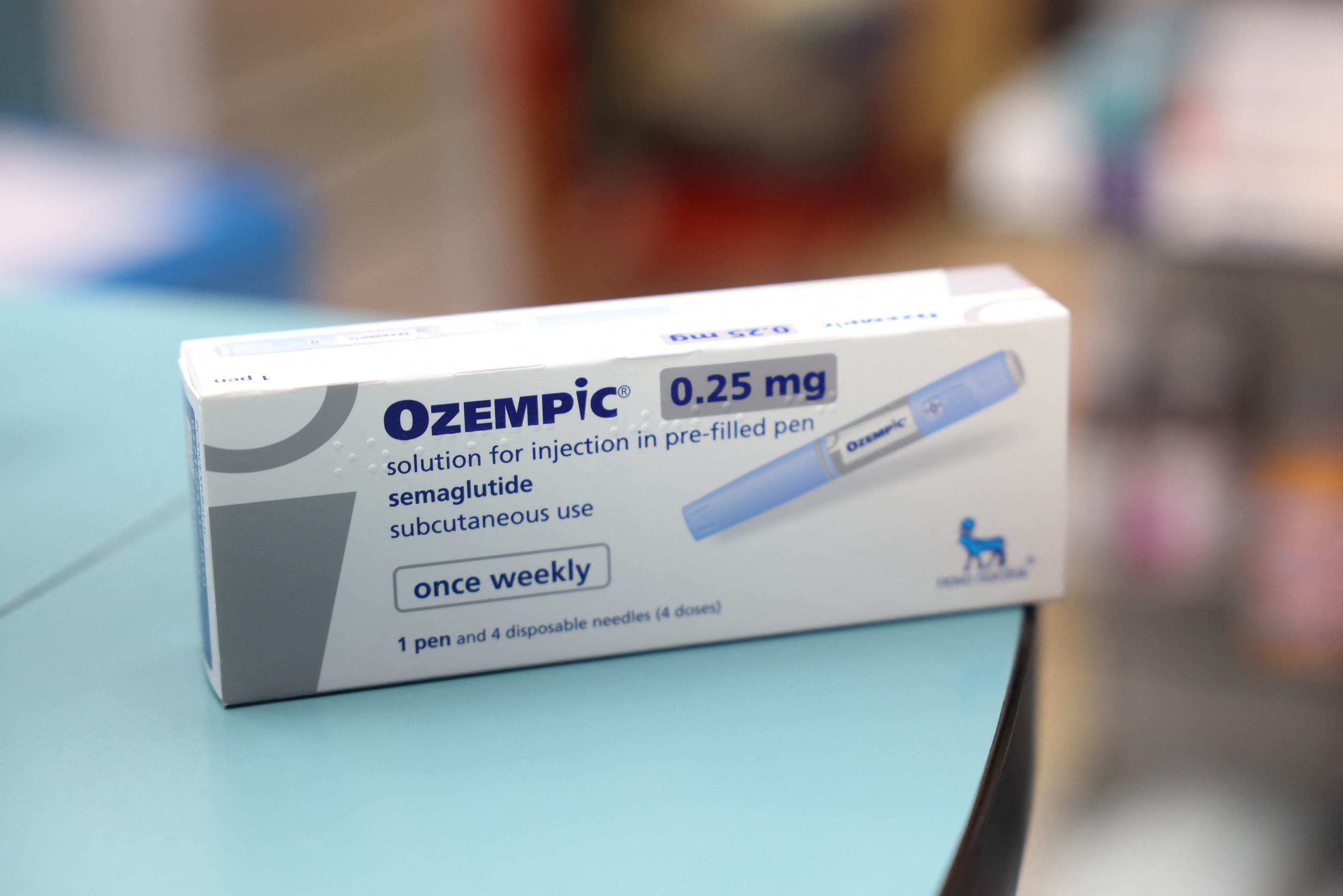Millions hoping to get King Kong weight loss jab Mounjaro on the NHS may have their hopes dashed due the glacial NHS roll-out plan, experts have warned.
Health chiefs yesterday announced 250,000 obese patients a year are set to receive the drug, which helps slimmers shed up to a fifth of their bodyweight.
But experts have told MailOnline eligibility criteria was 'very tight' and the proposed timeline 'too slow'.
Obesity treatment expert Professor Alexander Miras at Imperial College London said double the number need to be offered it annually, to avoid driving desperate dieters to costly private clinics or risky black market versions.
He said: 'I appreciate the NHS is under resourced, but I don't agree with the timeline — the number of people they aim to treat is too slow.

'We should be looking at double the number they are proposing because of the very large demand for these drugs.
'They've prioritised people with health complications getting the medication first, which is very reasonable.
'But only those with a BMI [body mass index] of 40 or more will get it.
'It should depend purely on the complications of the disease, rather than BMI.'
Almost one in three adults in England are obese — with a BMI of over 30 — while two-thirds are overweight.
In June the World Health Organisation issued an alert over dangerous fake weight loss jabs that had been found in numerous countries, including the UK.
In some cases counterfeits were found to have toxic ingredients — and there have been numerous reports of UK users who have become extremely unwell. In some cases it has even proved fatal.
The black market has sprung up amid massive demand for, and resulting widespread shortages of weight loss jabs including Ozempic and Wegovy.
The hope was the Mounjaro rollout would ease this.
However, Dr Simon Cork, senior lecturer in physiology at Anglia Ruskin University, told MailOnline the criteria for accessing the drug is 'very tight, particularly in the first phase'.
He added: 'This will only include a very small number of patients, but points to the pressures likely facing access to this medication as well.'
Others, however, suggested the staggered rollout was merely a result of 'NHS cost restraints'.
Professor Naveed Sattar, an expert in cardiometabolic medicine at the University of Glasgow, told MailOnline: 'The staged rollout is just a reality of the current cost of the drugs given NHS cost restraints.
'There are better ways than a BMI of over 40 as a first cut off, to target people at highest need but it's simple and easily understandable.
'We have to start somewhere and we will see progressively more appropriate use of these weight loss medicines over time which will benefit the substantial number of people in real need of sustainable weight loss.'
Tirzepatide works by suppressing two appetite-regulating hormones (GLP-1), making people feel fuller for longer while also making them experience fewer food cravings.
The jab should be supplied in a four-dose pen, which provides a month's treatment when used once a week, Nice said.
It was previously only available in single doses.
Mounjaro is expected to provide an alternative to Wegovy — or semaglutide — which has also been in short supply due to overwhelming demand.
Experts, however, warned the demand for the jab privately could put 'pressure' on its own supplies and called on the drug's manufacturer, US pharmaceutical giant Eli Lilly, to increase it.
Dr Carel Le Roux, a consultant in metabolic medicine at Imperial College Healthcare NHS Trust told MailOnline: 'We need to put more pressure on companies to increase the supply.


'We need to treat more patients to achieve optimal health for the NHS.'
Meanwhile, Professor Richard Holt, an expert in diabetes and endocrinology at the University of Southampton told MailOnline: 'I am not surprised by the demand in the NHS and private sectors.
'The disruption in supply of GLP-1 receptor agonists over the last year or so has caused concern for both people with diabetes and healthcare professionals.
'It is never good when people have to "stop – start" or "switch" treatment because of supply issues. So far, Eli Lilly has successfully managed the launch of Mounjaro in the UK to reduce the likelihood of a shortage.
'However, the NHS proposed roll out of Mounjaro for obesity will increase demand further which may put pressure on supplies.'
Patients in the US are already able to get the jab for weight-loss 'off-label' from some doctors, with many sharing their unbelievable transformation.
One overweight man claimed the medicine helped him shed up to 100lb (45.4kg).
Before-and-after pictures show the transformation of Matthew Barlow, a 48-year-old health technology executive living in California.

He began using the drug last November. At the same time, he also changed his diet and lifestyle, as recommended.
'Psychologically, you don't want to eat. Now I can eat two bites of a dessert and be satisfied,' he said.
But like all drugs, Mounjaro is not without side-effects.
The MHRA has warned the drug may affect how well the contraceptive pill works in obese or overweight female patients.
Other potential side effects include nausea, diarrhoea, vomiting — which usually goes away over time — and constipation.
Low blood sugar is also 'very common' in patients with diabetes, the agency added.
One trial involving 900 participants also found a fifth suffered from nausea and diarrhoea, and about one in ten reported vomiting or constipation.
Other people taking the drug outside clinical trials have reported experiencing hair loss while taking Mounjaro.
There has also been a suggested link to an increased risk of cancer from the jab.
The European Medicines Agency said this year that research on rodents has suggested the artificial hormones packaged in tirzepatide could raise the risk of medullary thyroid cancer.












